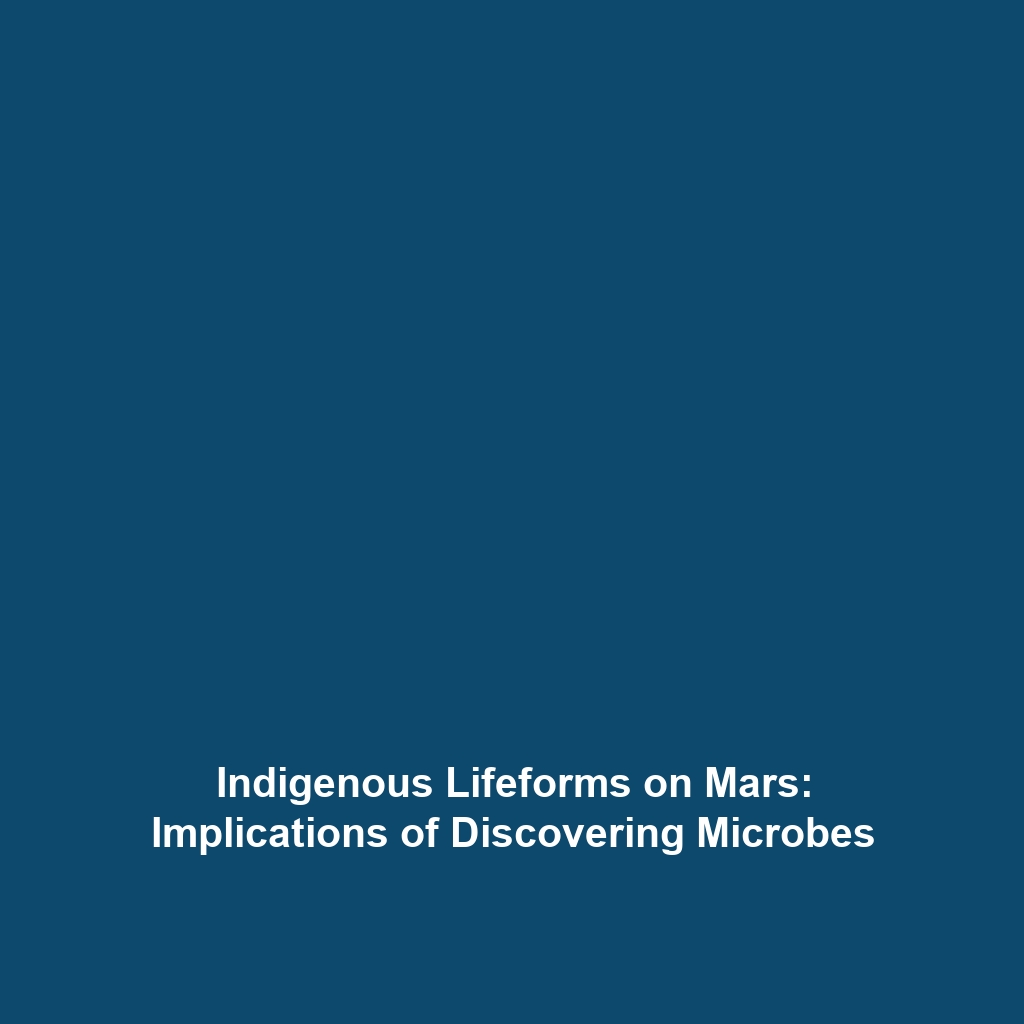Indigenous Lifeforms: What Happens If Microbial Life Is Found on Mars?
Introduction
Understanding the potential discovery of indigenous lifeforms on Mars is paramount as we explore the feasibility of colonizing the Red Planet. If microbial life is found on Mars, it could reshape our approach to space exploration and extraterrestrial colonization. The significance of finding life on another planet extends beyond scientific curiosity; it raises profound questions about biosafety, ethics, and our responsibilities as potential interplanetary settlers. This article delves into the implications of discovering microbial life on Mars and its relevance to the broader context of colonizing Mars.
Key Concepts
Several major concepts are central to the discussion of indigenous lifeforms on Mars:
- Microbial Life: Microorganisms, such as bacteria and archaea, are the most primitive life forms and could possibly survive in Martian conditions.
- Biosignatures: Indicators that can suggest the presence of life, which scientists look for in Martian soil and atmosphere.
- Planetary Protection: The guidelines required to prevent contamination by Earth organisms and to protect extraterrestrial life, should it exist.
The discovery of microbial life is intricately related to colonization efforts as it requires careful consideration of how humans might interact with Martian ecosystems.
Applications and Real-World Uses
The implications of finding microbial life on Mars can lead to significant real-world applications:
- Astrobiology Research: Understanding Martian microbes can inform us about life’s resilience and adaptability, which is crucial for future colonization efforts.
- Bioengineering: Techniques developed from studying Martian life could be applied to enhance life support systems for colonizers.
- Interplanetary Ethics: Discovering life will necessitate ethical frameworks guiding human activities on Mars.
These applications illustrate how studying indigenous lifeforms is essential for the long-term success of colonizing Mars.
Current Challenges
Several challenges and limitations emerge when studying microbial life relevant to colonizing Mars:
- Detection Methods: Current technology may not be sensitive enough to identify microbial life amidst the vast Martian terrain.
- Biosafety Protocols: Developing effective planetary protection measures to prevent contamination is complex and costly.
- Funding and Collaboration: Securing international cooperation and funding for Mars missions remains a significant hurdle.
Future Research and Innovations
The future of researching indigenous lifeforms on Mars is bright, with several innovations on the horizon:
- Next-Gen Rover Missions: Upcoming missions like NASA’s Mars Sample Return could significantly enhance our understanding of microbial life.
- Advanced Bioreactors: Innovations in bioreactor technology may allow scientists to simulate Martian environments on Earth, facilitating life detection studies.
- AI and Machine Learning: These technologies can improve data analysis from Mars missions, helping identify signs of life more effectively.
Conclusion
Discovering indigenous lifeforms on Mars would not only redefine our understanding of the universe but also play a crucial role in our strategies for colonizing the planet. As we continue to explore these possibilities, it’s essential to consider the ethical and practical implications of our actions. Engaging with ongoing research in astrobiology and planetary protection can provide valuable insights into making informed decisions as we move forward. For more information on Mars exploration and colonization efforts, please explore our links on Mars missions and Astrobiology.
